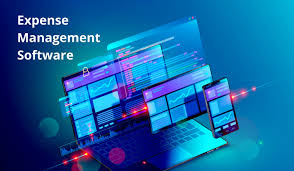Market Overview
The expense management software market is expanding rapidly as businesses increasingly seek efficient solutions to manage their expenses. Expense management software streamlines the process of tracking, reporting, and auditing expenses, making it easier for organizations to control costs, ensure compliance, and improve overall financial management. The rise of remote work, globalization, and the need for real-time financial data are key factors driving the adoption of these solutions. By automating expense-related tasks, businesses can reduce errors, save time, and gain valuable insights into their spending patterns, leading to better decision-making and strategic planning. The Expense Management Software Market size is projected to reach approximately USD 16.89 billion by 2032, at a CAGR of 11.80% from 2024 to 2032.
Request To Free Sample of This Strategic Report - https://www.marketresearchfuture.com/sample_request/7014
Key Market Segments
The expense management software market can be segmented based on deployment model, enterprise size, industry vertical, and region.
-
Deployment Model:
- Cloud-Based: Cloud-based solutions are hosted on the vendor's servers and accessed via the internet. They offer scalability, ease of access, and lower upfront costs, making them popular among businesses of all sizes.
- On-Premises: On-premises solutions are installed locally on a company's own servers. They provide greater control and customization but come with higher upfront costs and maintenance requirements.
-
Enterprise Size:
- Small and Medium-Sized Enterprises (SMEs): SMEs seek cost-effective and scalable solutions that can grow with their business.
- Large Enterprises: Large enterprises require robust, feature-rich solutions that can handle complex expense management needs and integrate with other enterprise systems.
-
Industry Vertical:
- IT and Telecom: Companies in this sector require advanced expense management solutions to handle high volumes of travel and technology-related expenses.
- Healthcare: Healthcare organizations need solutions that ensure compliance with strict regulatory requirements and manage diverse expense categories.
- Retail and E-commerce: Retailers and e-commerce businesses look for solutions that help manage operational expenses and optimize supply chain costs.
- Manufacturing: Manufacturing firms need tools to control production costs and manage expenses related to raw materials and logistics.
- Others: Other industries such as finance, education, and professional services also benefit from tailored expense management solutions.
Industry Latest News
The expense management software industry is continuously evolving, with new developments and trends shaping the market landscape. Here are some of the latest news and trends:
-
Artificial Intelligence (AI) and Machine Learning: AI and machine learning are being integrated into expense management software to provide predictive analytics, automated expense categorization, and fraud detection. These technologies enhance accuracy and efficiency, helping businesses make data-driven decisions.
-
Mobile Integration: The increasing use of smartphones and tablets has led to the development of mobile-friendly expense management applications. These apps allow employees to capture receipts, submit expenses, and approve reports on the go, enhancing productivity and convenience.
-
Blockchain Technology: Blockchain is being explored for its potential to provide secure and transparent transaction records. This technology can help prevent fraud, ensure data integrity, and streamline the auditing process.
-
SaaS Adoption: The Software-as-a-Service (SaaS) model continues to gain popularity due to its flexibility, scalability, and cost-effectiveness. SaaS-based expense management solutions allow businesses to access the latest features and updates without the need for extensive IT infrastructure.
-
Regulatory Compliance: With increasing regulatory scrutiny, expense management software providers are focusing on features that ensure compliance with financial regulations and standards. This includes automated audit trails, policy enforcement, and real-time reporting capabilities.
Key Companies
Several key players dominate the expense management software market, each offering a range of innovative solutions:
-
SAP Concur: A leader in the market, SAP Concur provides comprehensive travel and expense management solutions that integrate seamlessly with other SAP products. Their offerings include automated expense reporting, travel booking, and analytics.
-
Expensify: Known for its user-friendly interface, Expensify offers solutions for expense reporting, receipt scanning, and mileage tracking. It caters to both SMEs and large enterprises with scalable features.
-
Certify: Certify provides cloud-based travel and expense management solutions with a focus on ease of use and robust reporting capabilities. Their solutions include automated expense reporting, travel booking, and mobile access.
-
Zoho Expense: Zoho Expense offers an affordable and scalable solution for businesses of all sizes. It features automated expense reporting, receipt scanning, and integration with other Zoho products.
-
Coupa: Coupa’s expense management solution is part of its broader spend management platform. It offers features such as expense reporting, approval workflows, and integration with financial systems.
-
SutiSoft: SutiSoft provides a range of business solutions, including expense management software. Their offerings include automated expense reporting, policy enforcement, and analytics.
Market Drivers
Several factors are driving the growth of the expense management software market:
-
Rise of Remote Work: The shift towards remote work has increased the need for cloud-based expense management solutions that can be accessed from anywhere. These solutions help businesses manage expenses and ensure compliance, even with a distributed workforce.
-
Globalization: As businesses expand globally, managing expenses across different regions becomes more complex. Expense management software helps streamline this process by providing real-time visibility into global spending and ensuring compliance with local regulations.
-
Need for Real-Time Data: Businesses require real-time financial data to make informed decisions and optimize spending. Expense management software provides instant access to expense data, helping businesses track spending, identify trends, and make strategic decisions.
-
Cost Control and Efficiency: Automating expense management processes reduces manual errors, saves time, and improves efficiency. This leads to better cost control and helps businesses allocate resources more effectively.
-
Regulatory Compliance: Stringent financial regulations and compliance requirements drive the need for robust expense management solutions. These solutions help businesses ensure compliance, reduce the risk of fraud, and maintain accurate financial records.
Ask for Customization - https://www.marketresearchfuture.com/ask_for_customize/7014
Regional Insights
The adoption and growth of expense management software vary across different regions, influenced by factors such as economic conditions, technological infrastructure, and regulatory environment.
-
North America: North America is a leading region in the expense management software market, driven by the high adoption of cloud computing, advanced IT infrastructure, and the presence of major technology companies. The region's focus on digital transformation and regulatory compliance also supports market growth.
-
Europe: Europe is a significant market for expense management software, with strong demand driven by stringent financial regulations such as GDPR. The region’s emphasis on business efficiency and cost control further supports the adoption of these solutions.
-
Asia-Pacific: The Asia-Pacific region is experiencing rapid growth in the expense management software market, fueled by the increasing adoption of digital technologies, rising internet penetration, and growing awareness of financial management tools in countries like China, India, and Japan.
-
Latin America: Latin America is an emerging market for expense management software, with growing investments in digital infrastructure and increasing awareness of the benefits of automated financial management solutions.
-
Middle East and Africa: The expense management software market in the Middle East and Africa is developing, driven by the need for digital transformation and the adoption of advanced IT solutions to support business operations and financial management.
Conclusion
The expense management software market is poised for substantial growth, driven by the increasing need for efficient, scalable, and compliant financial management solutions. Key players in the market are continually innovating, incorporating advanced technologies such as AI, machine learning, and blockchain to meet the evolving needs of businesses. As digital transformation accelerates globally, the adoption of expense management software is set to rise, offering significant opportunities for growth and innovation. Regional variations highlight the diverse adoption patterns and market potential across different areas, underscoring the global impact of expense management software in enhancing business efficiency and financial control.
Expense Management Software Market Highlights:



